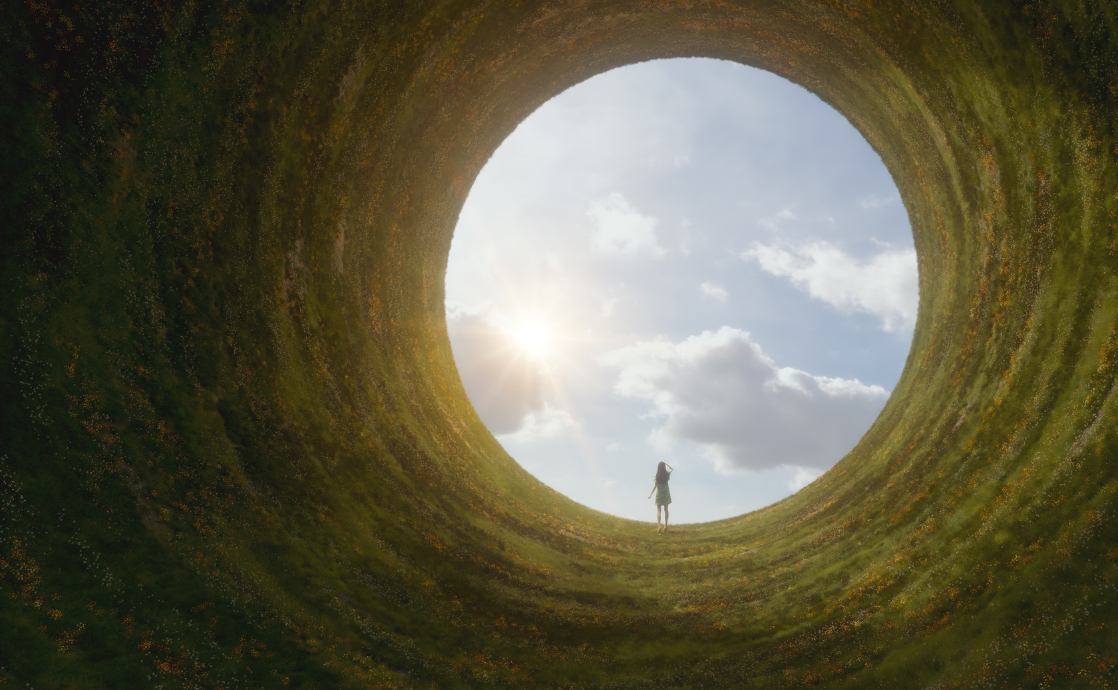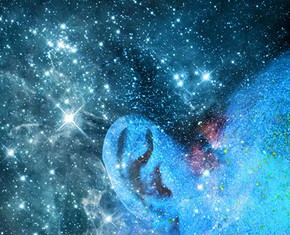The views expressed in our content reflect individual perspectives and do not represent the authoritative views of the Baha'i Faith.
Recently, while having afternoon tea with a friend, I noticed she kept looking at her watch. We had been together only about 20 minutes, but I got the feeling she wanted to leave.
I leaned back in my chair and gently asked, “Is anything wrong? Do you need to leave?” She looked around nervously and quickly answered, “Well, I think I should go. I just haven’t gotten anything done today!”
RELATED: How to Feel Happy: 9 Habits for a Happy Life
I remember feeling both confused and a bit stung. Is talking to me “doing nothing?” And if so, isn’t that a good thing? I have often remarked to friends that on the days I have chosen to “do nothing” many of my life’s most important events have occurred.
For example, about six months ago, I decided to have a restful day. I took a bike ride, but soon got hungry, and stopped at an unfamiliar community center to look for food. Just inside the door, I heard people singing and playing instruments, so I wandered into the room, and sat down to listen. Pretty soon, I was singing along, and two hours passed. (I was doing nothing times 3!) As I got up to leave, the band leader said, “You should join us! Want to play the drums?” Shocked and delighted, I answered, “As a matter of fact, I have always wanted to play the drums. My dad was drummer!” Now, so am I.
Then there was the day I decided to do nothing and sit on the porch all day. The weather was nice, and a neighbor strolling by introduced me to her friend. That new friend has now become my best friend, a major part of my life. What if I had decided to “get things done” that day instead of sitting on the porch?
I found the Baha’i Faith the same way, back in college. Meandering around the campus of a neighboring school, I saw a notice on a bulletin board about a Baha’i meeting. Even though I was majoring in religion and psychology, I had never heard of it. So, I called the phone number on the bulletin board and long story short, that moment of “nothingness” has changed my whole life in ways that are so treasured they are impossible to measure or describe.
Are these just coincidences I’ve strung together, or could there be something more to the idea of having no set plans or agendas? At any given moment, how does one decide what to do?
According to Abdu’l-Baha, the best source of knowledge is the Holy Spirit, one many of us overlook, one that can only be sourced in times of quiet and shall we say, “nothingness.”
He said it in 1912 at a talk at the Hotel Ansonia in New York City, when he addressed the question of how to acquire knowledge. He spoke at some length about the theories of the time that included “sense perception,” “reason,” “traditions, and “inspiration.” One by one, he eliminated all of them as reliable sources of knowing. Sense perception can be fooled, reason can be faulty, traditions outmoded, and inspiration can be just imagination or wishful thinking. He said:
What remains? How shall we attain the reality of knowledge? By the breaths and promptings of the Holy Spirit, which is light and knowledge itself. Through it the human mind is quickened and fortified into true conclusions and perfect knowledge. This is conclusive argument showing that all available human criteria are erroneous and defective, but the divine standard of knowledge is infallible … All human standards of judgment are faulty, finite.
“The breaths and promptings of the Holy Spirit.” What a wonderful mysterious phrase! What can that mean? Over and over again, the Baha’i prayers and writings direct our attention to our own hearts as the well spring of this kind of profound knowledge. True knowing does not come from our minds, our obligations, our routines, or our fantasies – instead, it comes from our hearts. Here is just one example from the writings of Baha’u’llah, the prophet and founder of the Baha’i Faith:
Open the doors of your hearts. He Who is the Spirit verily standeth before them. Wherefore banish ye Him Who hath purposed to draw you nigh unto a Resplendent Spot? Say: We, in truth, have opened unto you the gates of the Kingdom. Will ye bar the doors of your houses in My face? This indeed is naught but a grievous error. He, verily, hath again come down from heaven, even as He came down from it the first time.
RELATED: Searching for a New Spiritual Susceptibility – In Ourselves
The Baha’i writings often contrast knowledge based on heart and spirit with the worldly knowledge labeled “vain imaginings.” Baha’u’llah wrote:
Fear ye God and abandon vain imaginings to the begetters thereof and leave superstitions to the devisers thereof and misgivings to the breeders thereof. Advance ye then with radiant faces and stainless hearts towards the horizon above which the Day-Star of certitude shineth resplendent at the bidding of God, the Lord of Revelations.
The Baha’i teachings urge us all to:
Incline your hearts, O people of God, unto the counsels of your true, your incomparable Friend. The Word of God may be likened unto a sapling, whose roots have been implanted in the hearts of men. It is incumbent upon you to foster its growth through the living waters of wisdom, of sanctified and holy words, so that its root may become firmly fixed and its branches may spread out as high as the heavens and beyond.
To be clear, I am not claiming that drinking tea, riding bikes, or even singing and beating a drum are somehow blessed events necessarily. But what they represent for me are symbols, markers, of how my life is blessed and guided and guarded in ways that I cannot begin to know – and that taking time to be open to the loving guidance of the Spirit within my own heart is the most important thing I can “get done” on any given day. Setting aside my own agenda, which is based on my “worldly desires,” leaves room for my spiritual side to influence the events of my life in the most beautiful ways imaginable.
















Comments
Sign in or create an account
Continue with Googleor